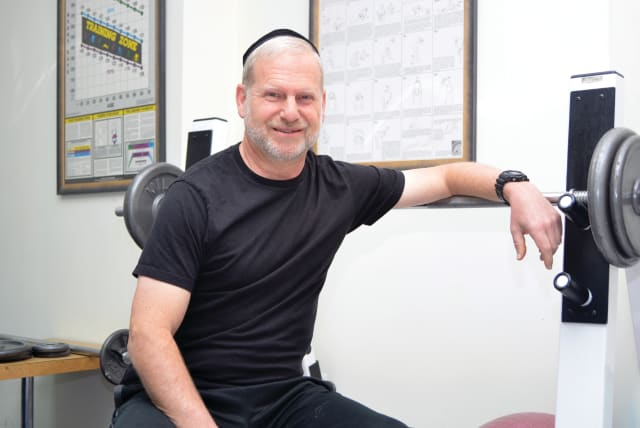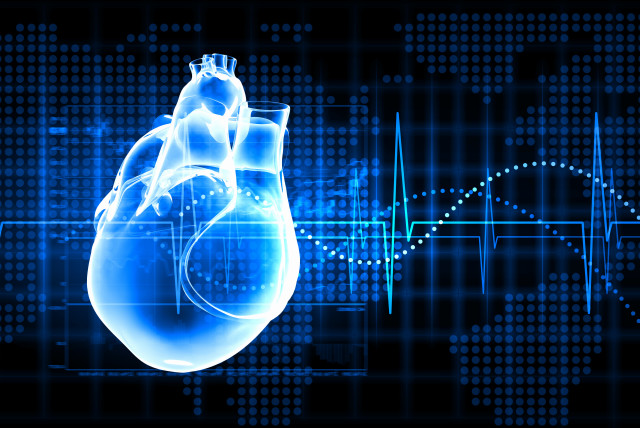The medical establishment's role in heart attack rehabilitation - opinion

The third installation of a coach's advice on life after a heart attack.
In parts 1 and 2, we discussed two important lifestyle behaviors that have a pronounced effect on heart health for better or for worse: diet and exercise. Now, it’s time to turn to the medical establishment and all they have to offer to assist in rehabilitation after a heart attack and to see what is available to prevent a heart attack and avoid hospital care.
First of all, let me say, unequivocally, that every single doctor, nurse, or volunteer whom I met in the hospital was absolutely sincere in their caring and real desire to help me. But let’s put this out there right away: You don’t want to spend time in a hospital. It’s not just that the pajamas are uncomfortable! Hospitals play the most critical role in care for emergency conditions, procedures, and tests that can’t be done elsewhere, but there is a lot of baggage that comes along with that.
We are at our most vulnerable immediately after a medical event. Imagine spending an entire night in the emergency department, followed by an angiogram, being told that you can’t be stented and that bypass surgery is your only option. The next thing you know, the head of cardiothoracic surgery is standing next to your bed. I was impressed that the invasive cardiologist had acted so quickly to pass me on. I was then told, “Don’t check out and don’t go home, we need to operate on you and it needs to be tomorrow or the next day. Stay here, we will get you prepped.” Then I was also informed that I was going to be out of commission for up to six weeks; not easy for a self-employed person. I felt vulnerable and ill-equipped to make rational decisions.
I was moved to the heart and thoracic ward. In short order, my drug regimen was overhauled and an IV was hooked up. Upon examination of my new blood work, it was decided to push off my surgery for at least one more day. The next day it was put off until at least the beginning of the following week. In the meantime, as my head was back on my shoulders and we began to do research, I realized that I might be better off having this particular surgery in a different hospital and that I might be able to avoid the surgery altogether and still have a great outcome. Eight days after I was admitted, there was still no surgery (that was a gift from God), and I was told to go home for a vacation and come back in about a week on a convenient day to have the operation.
In the meantime, I had sought out other opinions. We spoke to other cardiologists, medical experts, and knowledgeable friends. Two cardiologists in one room seem to have three opinions or more.
At one extreme, I was pushed to get this surgery as soon as possible and to stay in my apartment and even stay in bed in the meantime. At the other, a cardiologist told me to get a stent from a very skilled invasive cardiologist. He told me not to exert myself greatly but encouraged me to do slow to moderate walking on a daily basis. A third doctor’s advice on physical activity was somewhere in between those two opinions.
I was left scratching my head.
The immediate need for surgery
First, I needed surgery immediately; then it was decided to give my kidneys a rest from the contrast dye from the angiogram; then I was told to go home for another week (that would make two weeks from the time I needed emergency bypass). I then met with an invasive cardiologist who explained what he could do, what we could try, and how, even if we failed, I would be in a much improved condition for surgery if needed. I then got a good inkling of how much some of the previous information I had been given may have been faulty or perhaps prejudiced. This doctor scheduled my stenting procedure for the following month. He told me to take my medication and use common sense in how much to exert myself, “If you experience shortness of breath while climbing hills and stairs, cut back your pace and try to avoid them where possible) and if you have chest pain again, go to the emergency department. And so I followed the instructions carefully.
We are past the stent now. The doctor was not 100% successful, but successful enough (he opened my right coronary artery) to take me out of immediate danger. Depending on a test I will be having next week, we just might be able to leave well enough alone and not pursue any further procedure or surgery, or perhaps try to open the left side.
I have left out many details here. As much as I have spent a career helping people eliminate or reduce medications, these very medications, when used appropriately, can save a life. I am taking many of them right now. Hopefully, given my lifestyle, many of them will eventually be removed from my daily regimen and others will be reduced. I also understand the responsible decisions made by doctors taking my kidney health into consideration. They all meant well and all were caring and all did what they thought was in my best interest.
Some people have wondered why I am exposing my experience in such a public way. Simply put, if my story helps even one person to prevent heart problems, reverse disease, or learn how to deal with the medical establishment better, then it was worth all the publicity.
What are the main takeaways from my experience?
Eat a plant-predominant diet with as close to zero oils as you can. Keep your salt and sugar consumption very low. Even keep fatty plant foods like unroasted and unsalted nuts and avocados low in the diet. The sooner you start, the better!
Exercise daily! Aim for 35 minutes of any aerobic exercise you want (walking is easy and free). Add in muscle-building exercises two or three times a week, you don’t need a lot to make a difference. If you don’t have the time, make the time so that you will have the time.
If you are above the age of 40, see your doctor every 12-18 months and get examined, including a blood test that shows all markers for cardiovascular disease – including an HS-CRP and lipoprotein (a).
If you are deemed eligible for a procedure, surgery, or medication, always get a second or even a third opinion. It is your right and something you are entitled to within the medical system.
You are in charge. Start educating yourself on the basics of health. Ultimately, it is you who will make the final decision and it needs to be an informed one.
Read books like The China Study by Dr. T. Colin Campbell and Preventing and Reversing Heart Disease by Dr. Caldwell Esselstyn. Other authors such as Dr. Joel Kahn, Dr. Dean Ornish, and Dr. Neal Barnard are worth reading.
We can’t overlook the importance and crucial role of support from family and friends. My wife and my family both in Israel and abroad were with me every step of the way, along with an array of health professionals. Although altogether too many to mention by name, there are some people I must thank publicly. To the family member (you know who you are) for his persistence in pursuing the best path forward, long-time WFPB (Whole Food Plate Based) advocate Amy Mosery, and Dr. Ronnie Hershman from Long Island, NY. His first words to me were, “You aren’t having surgery.” (Dr. Hershman has been there every step of the way since Amy called him.)
I am so full of gratitude to all of you and surely to the One above who is the ultimate healer.
I have now been the patient, and I know that because of that, I will be an even better health and wellness coach. I truly hope that sharing my journey has been helpful because ultimately it is you who will “add hours to your day, days to your years, and years to your life”.
The writer is a health and wellness coach and personal trainer with more than 25 years of professional experience. He is director of The Wellness Clinic and can be reached at alan@alanfitness.com.
Jerusalem Post Store
`; document.getElementById("linkPremium").innerHTML = cont; var divWithLink = document.getElementById("premium-link"); if (divWithLink !== null && divWithLink !== 'undefined') { divWithLink.style.border = "solid 1px #cb0f3e"; divWithLink.style.textAlign = "center"; divWithLink.style.marginBottom = "15px"; divWithLink.style.marginTop = "15px"; divWithLink.style.width = "100%"; divWithLink.style.backgroundColor = "#122952"; divWithLink.style.color = "#ffffff"; divWithLink.style.lineHeight = "1.5"; } } (function (v, i) { });

